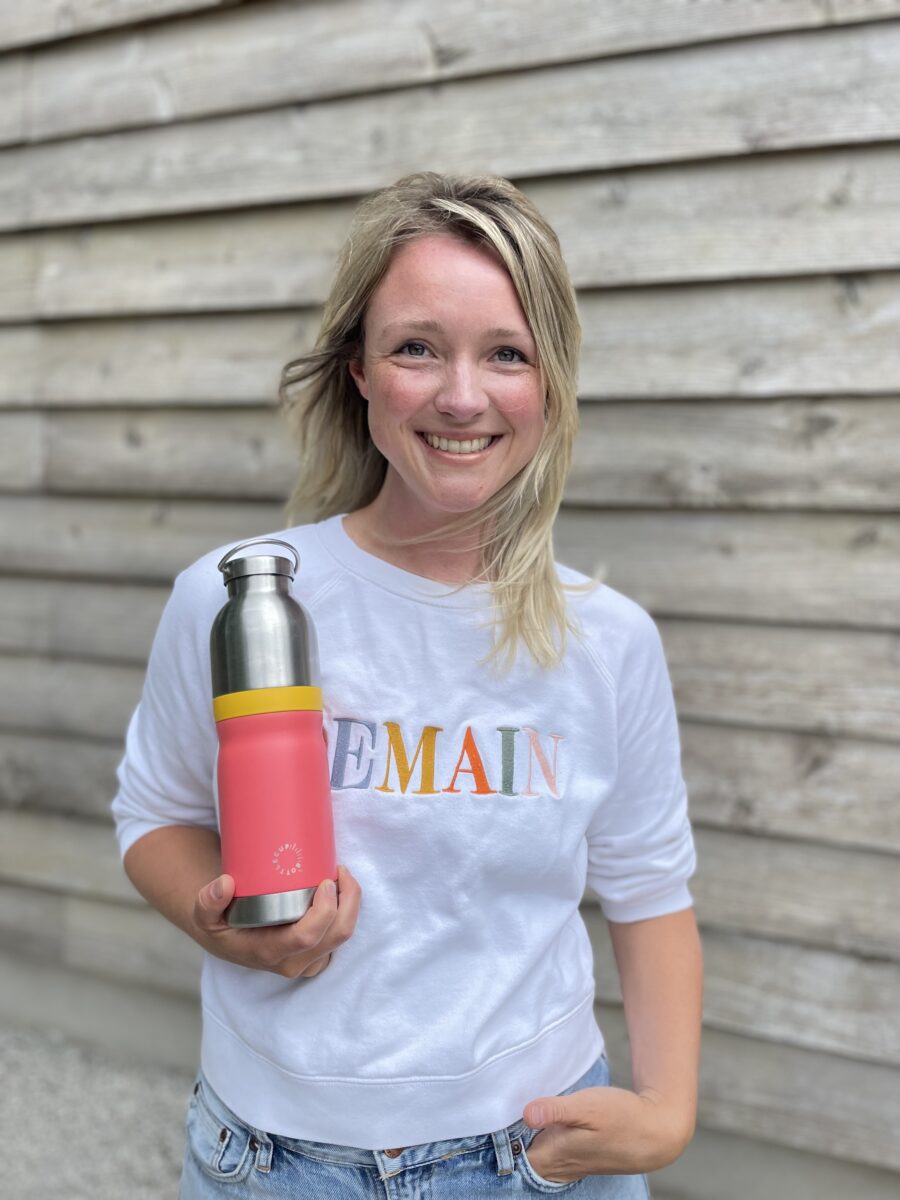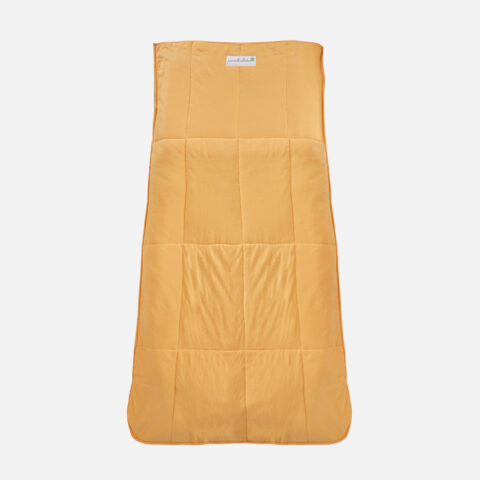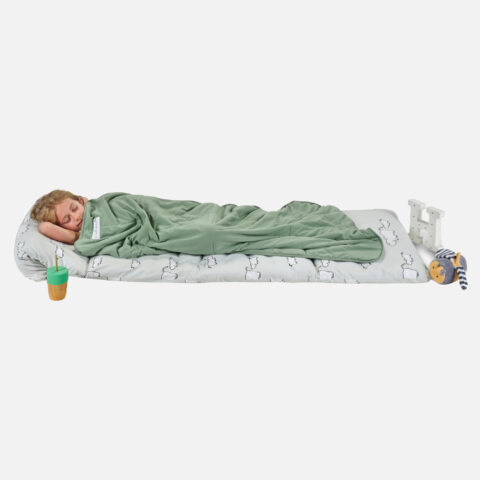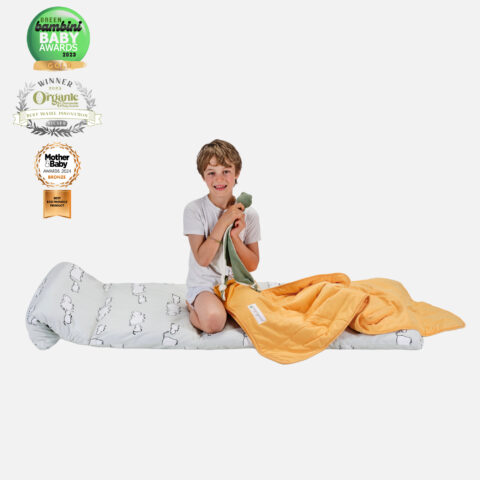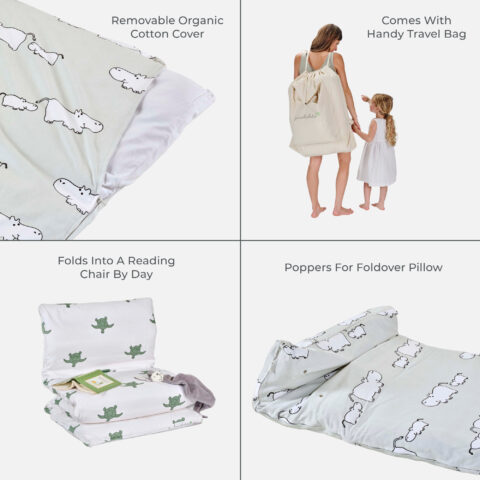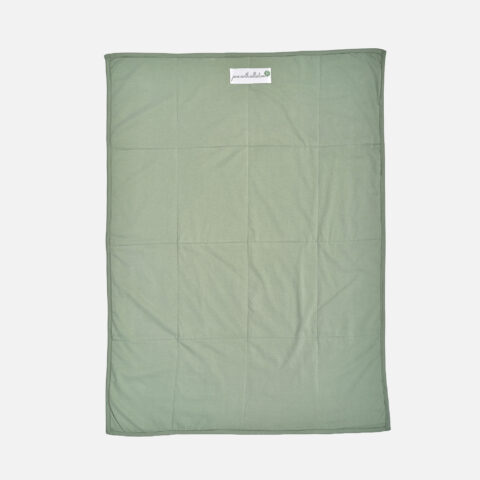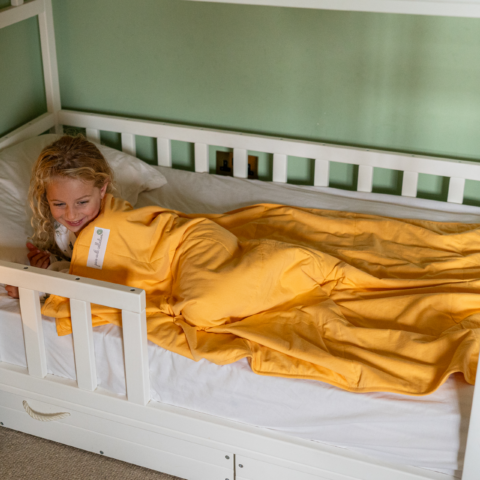Kate Arnell is a TV presenter turned content creator, sharing her love for organic, non-toxic and plastic-free living on her YouTube channel, blog and new podcast. She is the author of Six Weeks to Zero Waste and has been a Soil Association ambassador and BOOM Awards judge. Kate and her husband Mark recently launched their own product – Bottlecup – a convenient 2in1 reusable water bottle and coffee cup. Designed to help people carry less, reuse more and actually remember their cups!
In 2019 Kate gave birth to their son, and realised now more than ever just how important choosing organic is for our health, our environment, our farmers and our children.
Why I Choose Organic for My Family
From health, the environment, and supporting farmers, here’s why choosing organic can have a big impact.
Health
Food
One of my primary reasons for choosing organic food is for my family’s health. Never before has our food been sprayed with so many synthetic chemicals, some linked to serious health issues. Babies and children are particularly vulnerable to these toxins as their bodies are still developing.
I personally find it reassuring that organic food is produced without synthetic pesticides, herbicides, or GMOs, and avoids artificial additives. Studies even show that switching to an organic diet can reduce pesticide levels in our bodies by over 60% in just a week.
Organic food often has higher nutritional content too, which is crucial during a child’s early years when brain development is critical.
As well as choosing organic, I’m also passionate about reducing our plastic exposure. Scientists are discovering just how pervasive and harmful to our health plastic can be and how packaging can contribute towards our overall exposure to harmful chemicals.
While a lot of organic food is still packaged in plastic in supermarkets, I’ve found it easier to source organic and plastic-free options from local farm shops and zero-waste stores. Most will deliver too!
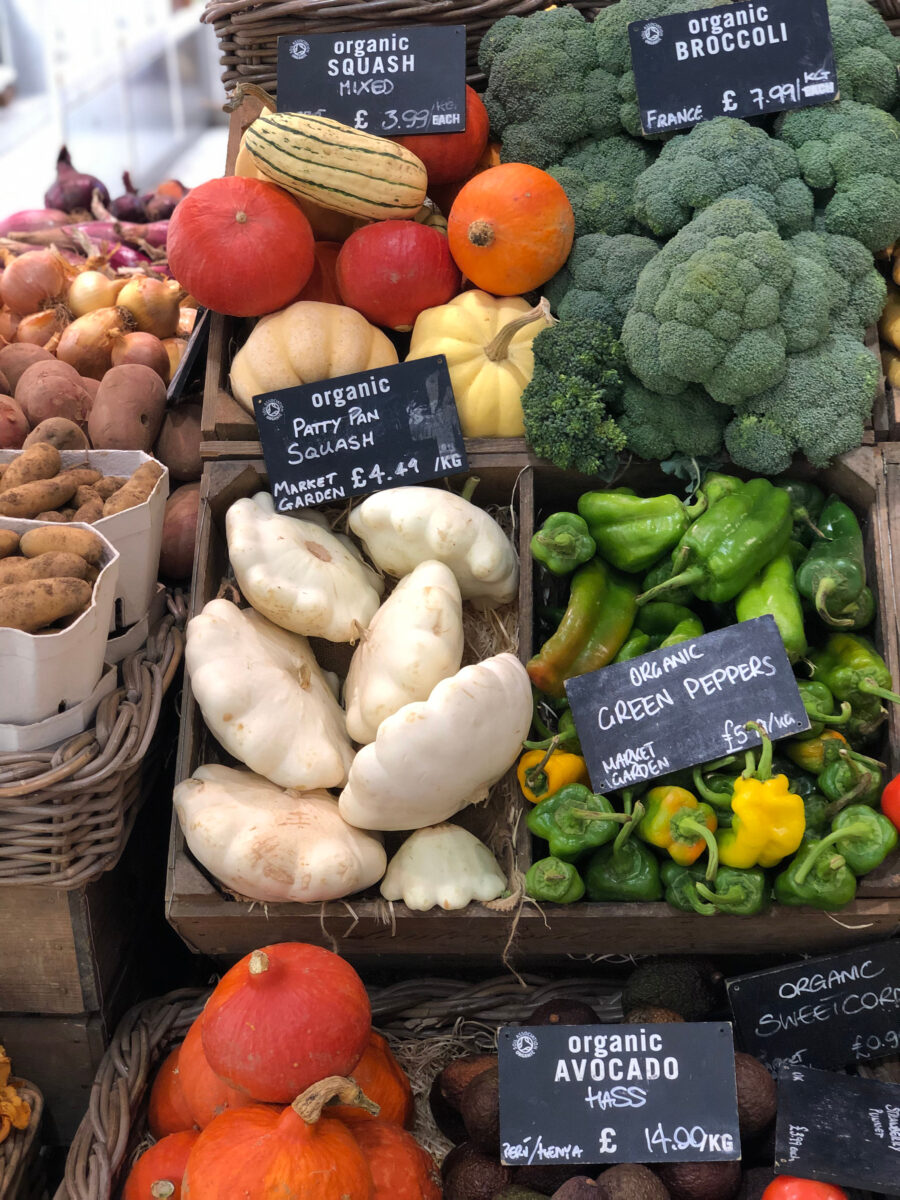
Clothing and Bedding
Choosing organic doesn’t stop at food! I also opt for organic materials in clothing, bedding, and homewares. We spend a significant amount of time in contact with these items, wearing clothes most days and nights (except naked Wednesday!) and sleeping for up to a third of our lives (perhaps a little less in early parenthood). I like to look for GOTS certification (Global Organic Textile Standard) when it comes to organic materials as it ensures products meet strict environmental and social criteria, every step of the way from farming and production to the final product
I love that organic textiles are made from natural fibres and are free from harmful chemicals and toxic dyes, which is especially important for children and those with sensitive skin. In contrast, conventional clothing often involves substances that may be harmful to our health and the environment.
Whilst experts are now warning that synthetic clothing can pose serious health risks, most people are unaware that the majority of cotton grown today is genetically modified (Bt cotton) and is far from natural, requiring significant amounts of pesticides and water.
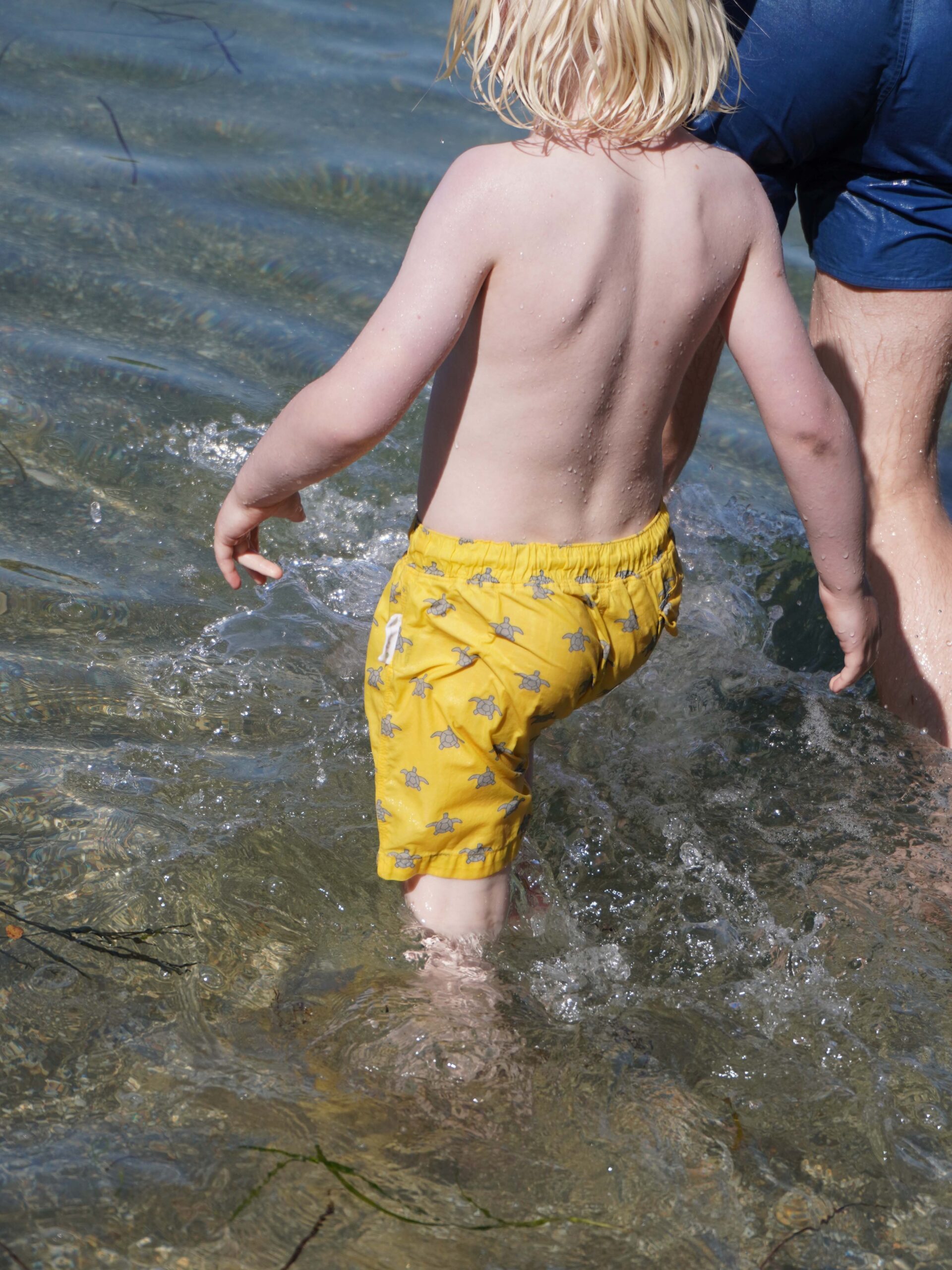
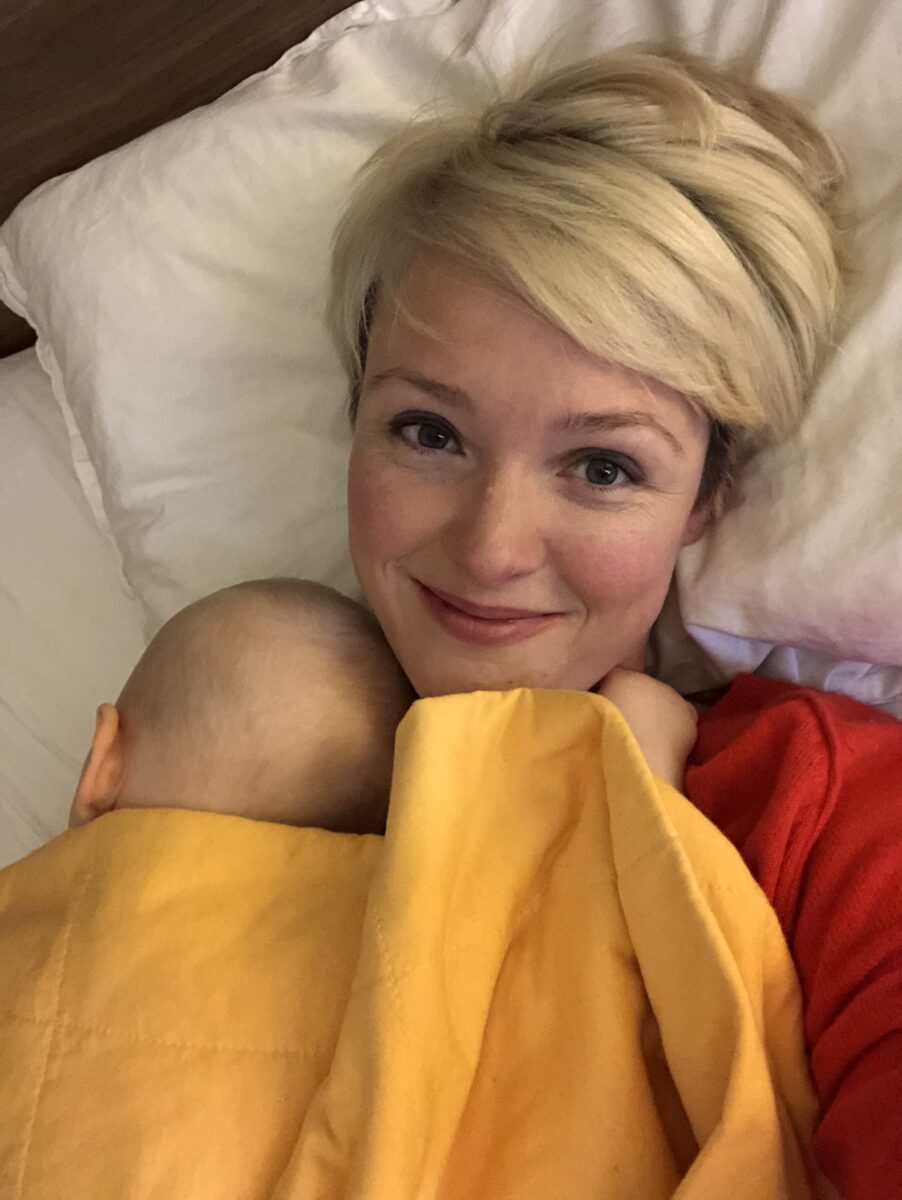
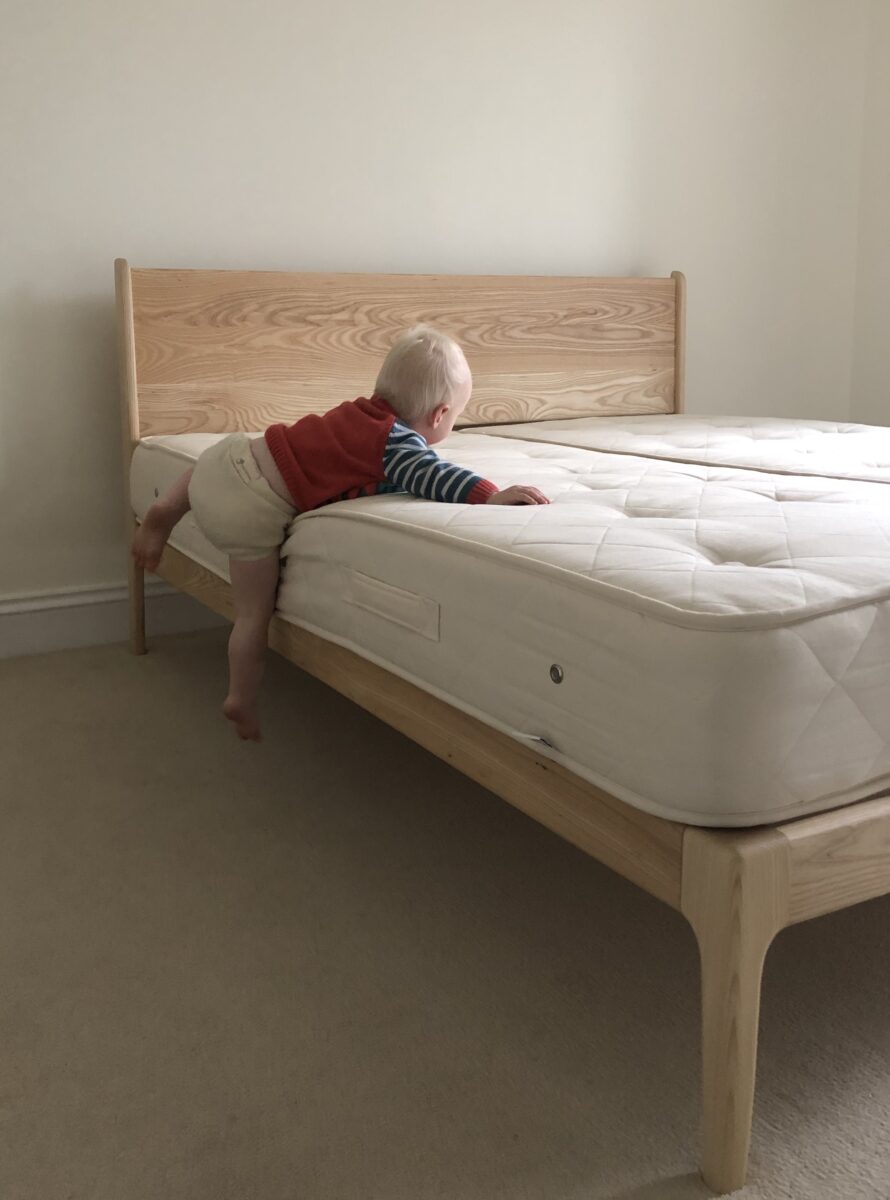
Cotton is a notoriously thirsty crop but organic farmers work with nature meaning 80% of organic cotton globally is grown in rainfed conditions, rather than relying on surface or groundwater irrigation. And as it’s organic, no synthetic pesticides are used.
I do my best to ensure that most of our family’s clothing is organic and plastic-free (including harder to find items like active-wear, swimwear and rainwear). Even the cloth nappies we used for our son when he was a baby were made from organic cotton and wool, by Babee Greens.
I love that Pure Earth Collection makes organic swimwear for kids! They’ve even launched an organic swim nappy – I wish that had been around when my son was little.
When it comes to bedding, I opt for organic mattresses, duvets and pillows from Naturalmat who use organic materials including organic wool which is not only natural, biodegradable and durable but also acts as a natural flame retardant.
Synthetic mattresses and bedding trap heat and sweat which can make for an uncomfortable night’s sleep for all, especially babies who struggle to regulate their own body temperature at first. And because synthetics are so highly flammable, they are covered in chemical flame retardants.
Pure Earth Collection have created an organic travel bed for kids, organic blankets and new larger organic sleeping bags – all organic and ideal for sleepovers, camping or just chilling in a den.
Personal Care and Cleaning Products
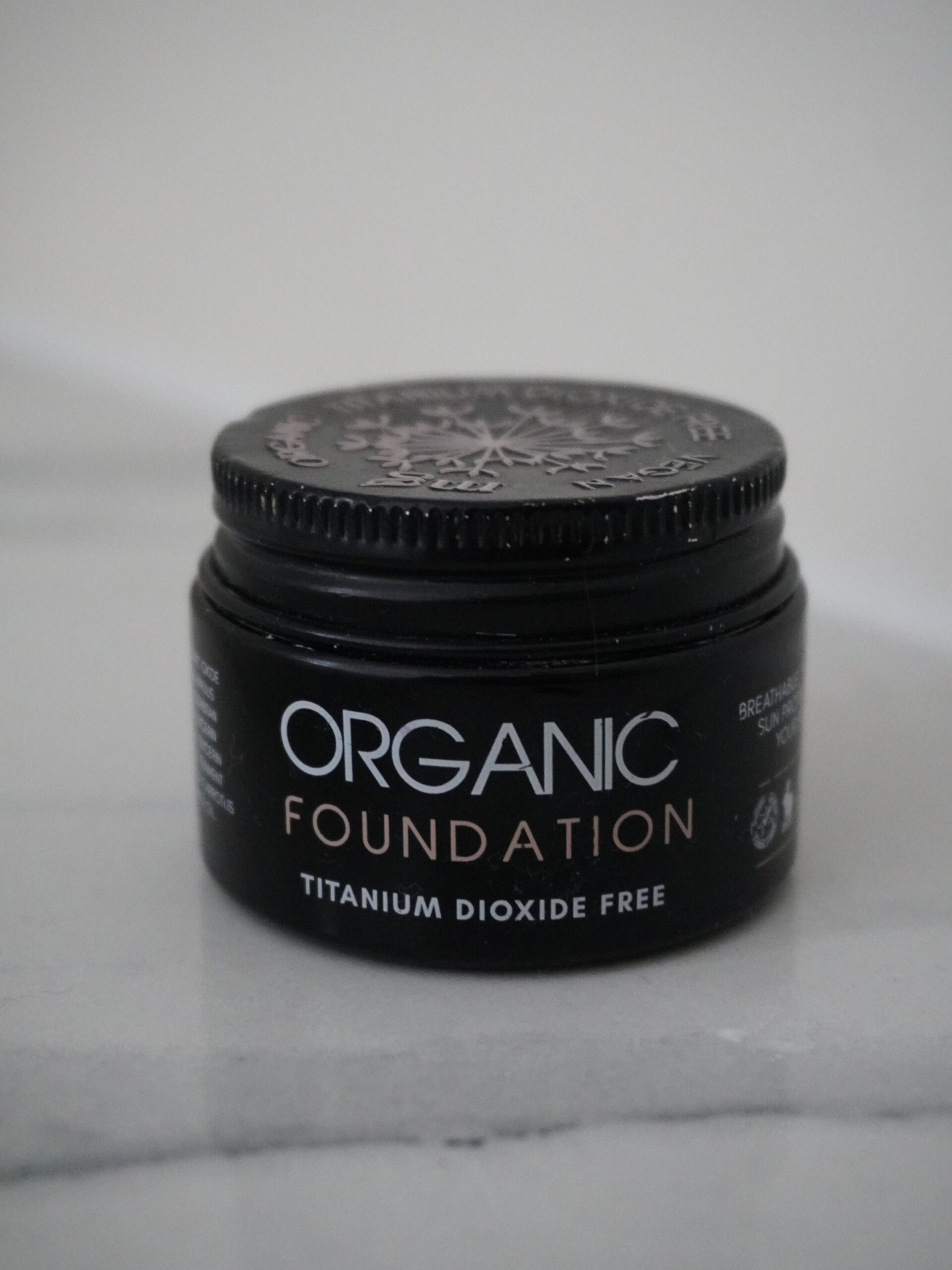
Organic extends to personal care and cleaning products for us too! Many conventional personal care products such as shampoo, skincare, deodorant, makeup and sanitary products contain harmful chemicals and even synthetic fragrances which are banned from organic products.
I’ve managed to switch most products out for organic and mostly plastic-free alternatives and I’ve simply let go of having too many products. For example, as a family we all use the same shampoo. And if my child decides to explore my makeup bag, I know there aren’t any toxic products lurking in there.
Synthetic chemical cleaning products can be a major source of indoor air pollution in our homes. Hundreds of different VOCs (Volatile Organic Compounds) are emitted from cleaning sprays, the majority of which are not disclosed on ingredient labels.
A recent study by The Danish Consumer Council has found that several popular washing up liquids contain potential endocrine disrupting chemicals. Children’s health may also be at risk with studies showing that higher use of certain indoor cleaners in utero and in infancy is associated with a greater risk of asthma and wheezing in childhood.
For general cleaning, we mostly use simple natural ingredients such distilled white vinegar, sodium percarbonate and citric acid. I buy organic washing up liquid and castile soap from Greenscents who make certified organic cleaning products that come in glass bottles and they even have a return and refill service to reduce waste.
Toys
As we know, babies and young children explore the world by mouthing objects, including toys! Unfortunately, most soft toys are made from polyester, which easily sheds microplastics. This is one of my biggest bugbears!
A 2020 study from the Endocrine Society found that microplastics interfere with and even harm normal developing endocrine systems in infants through exposure. Studies show that babies have 15 times more microplastics in their bodies than adults.
Instead, we choose soft toys made from organic materials that are free from toxic dyes and chemicals. Thankfully Pure Earth Collection offers safe, organic options for babies. I also recently put together a list of organic and natural soft toys on my personal blog here.
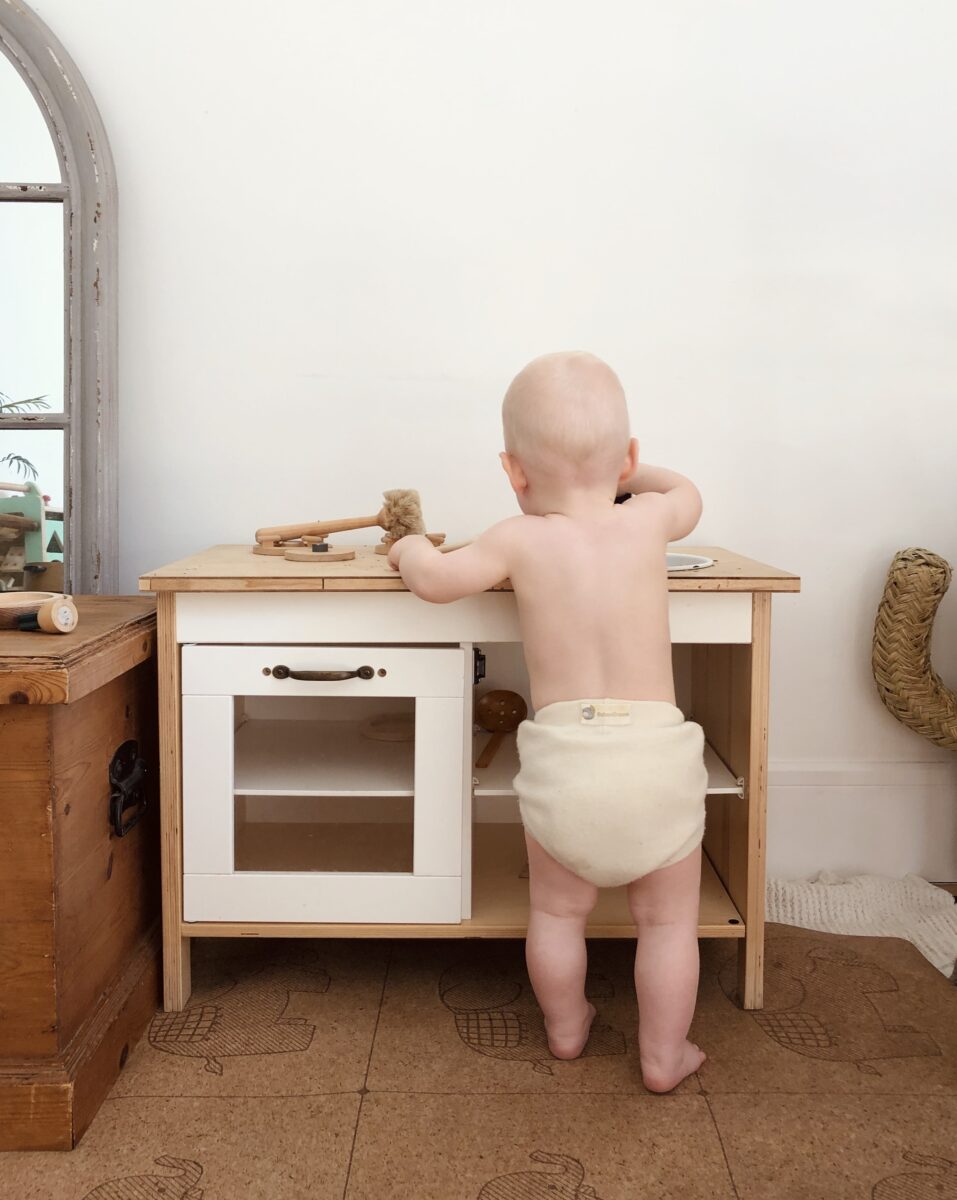
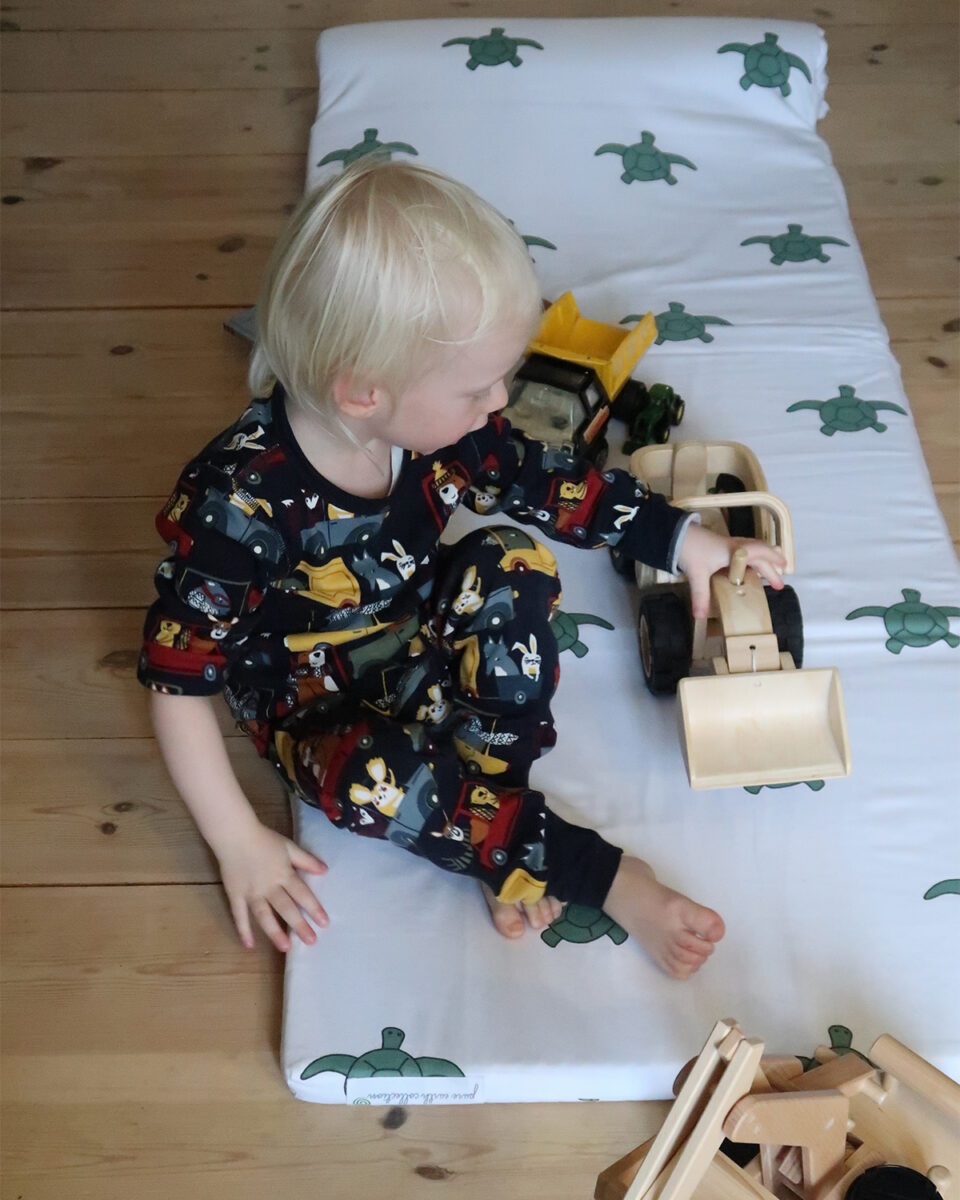
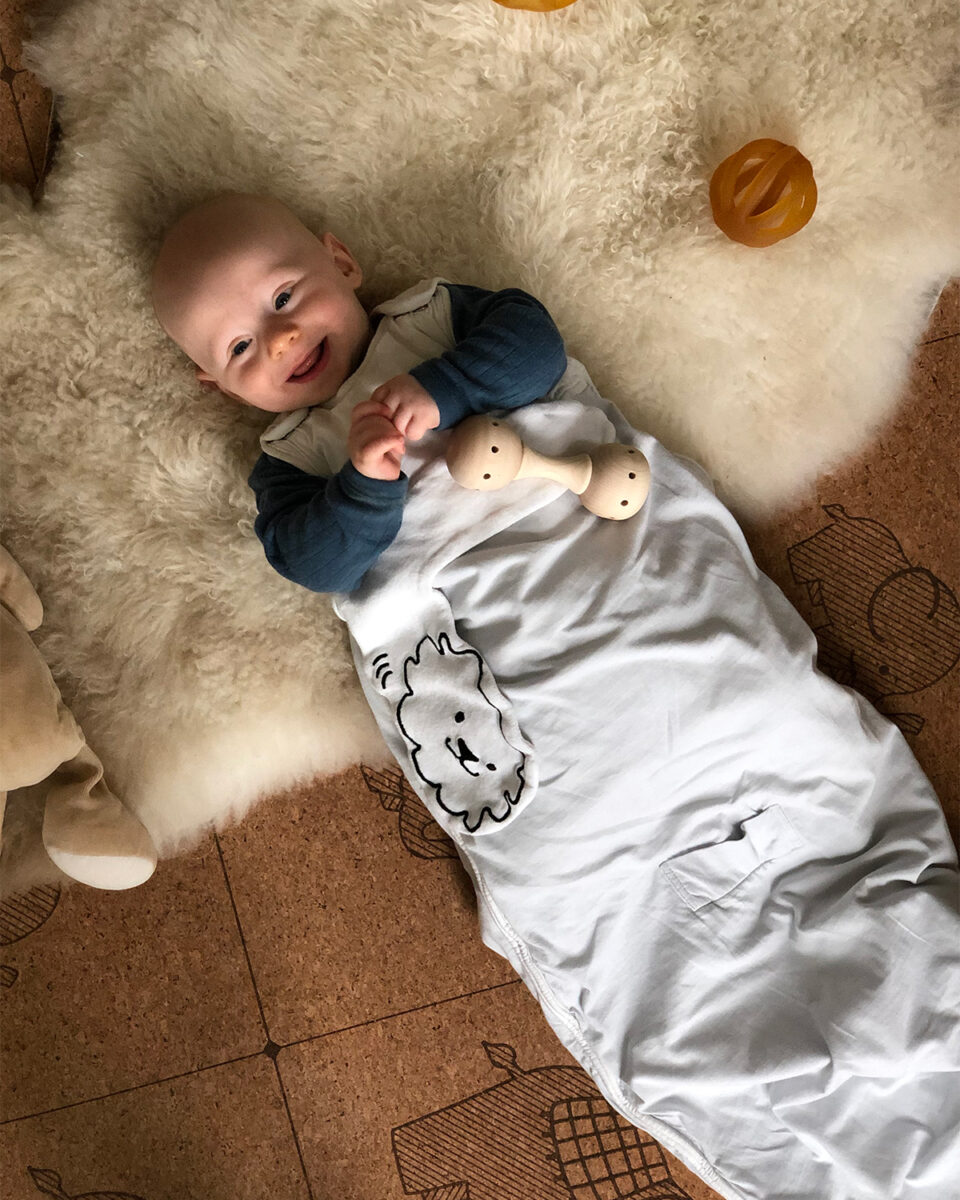
Environment
As well as choosing organic for our personal health, I love that it supports sustainable farming practices that promote biodiversity and healthy ecosystems. Organic farming practices protect wildlife by reducing chemical runoff and creating havens for beneficial insects such as bees.
It also helps build healthier soils which not only produces more nutritious food but also sequesters carbon. And it turns out our soils can store more carbon than the atmosphere, and all of the world’s plants and forests combined?
Taking care of the soil is essential in organic farming, nourishing it with composts, manure and regular rotations, and keeping it covered with different crops throughout the year. As a result, long term studies have shown that soils in organic farms store more carbon than non-organic farms.
Farmers
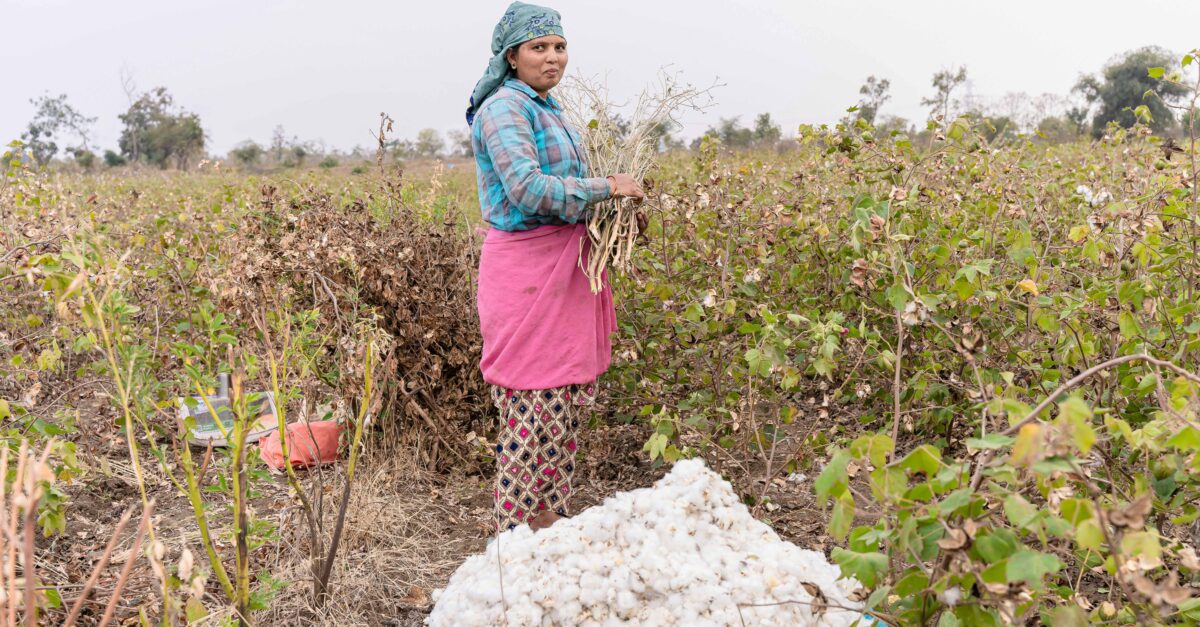
Organic farming also supports farmers with fair wages and safer working conditions and means they’re not exposing themselves to harmful chemicals in the process.
It wasn’t until I was asked to make a mini-documentary on my YouTube channel for the Soil Association that I really understood the importance of choosing organic for farmers. Especially when it comes to cotton.
I learned that if we replaced all cotton (a large portion of which is currently GMO) with organic cotton, we would be helping the largest amount of the poorest people in world. Cotton is farmed in over 100 countries and it is estimated that 100 million households, most in some of the world’s poorest countries, are dependent on cotton farming
Non-organic cotton guzzles up 16% of the world’s insecticides – more than any other single crop. That’s HUGE, for just one crop! And farmers are not permitted to save the seeds for replanting as they belong to the seed companies who have patented them. So the cotton farmers must pay for new seeds each year as well as the pesticides and fertilisers required for GM cotton. Many farmers’ suicides in India have been directly linked to farming GM cotton – I’d highly recommend watching the documentary SEED: The Untold Story to learn more.
Organic cotton farmers however, are required by organic standards to grow more than one crop (usually 4 or 5 more) to increase biodiversity and fix nitrogen in the soil. So if their cotton crop fails one year or the price of cotton drops, they still have food to sell, feed themselves and their communities. They have security.
Animal Welfare
Organic standards are good news for farm animals too as they require farmers to meet the highest animal welfare criteria.
The animals must be truly free range and have access to pasture with plenty of space and be allowed to move and express their natural behaviours, reducing stress and disease.
Their diet must be as natural as possible, free from GMOs. Currently, over a million tonnes of GM crops are imported each year to feed the majority of non-organic livestock in the UK.
Organic farming standards also ban the routine use of all antibiotics and wormers, and an animal is only treated with medicine as a last resort. In 2017, farm animals accounted for around 30% of all antibiotics used in the UK. Reducing routine antibiotic use helps minimise antimicrobial resistance and protects the effectiveness of these treatments.
Investing in Health and the Future
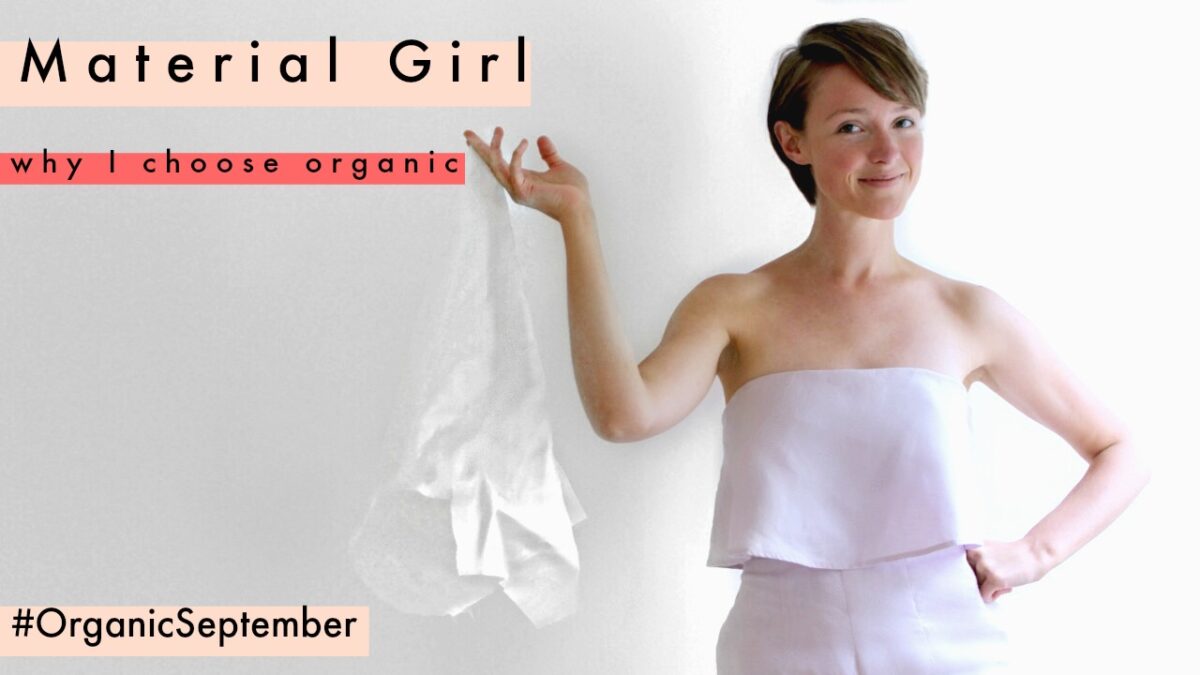
Each time we choose organic, we create demand for better practices. For me, whenever possible (and I appreciate it isn’t possible for everyone!) I try to buy from or support businesses that prioritise organic, whether that’s food, clothing, personal care or homewares.
I believe that choosing organic is an investment in my family’s long-term health and the health of our planet. It provides peace of mind knowing we are reducing potential risks from harmful chemicals while supporting a system that values farmers, animal welfare and the environment.
Shop Some Of Kate’s Favourites From Our Range
References:
https://foe.org/blog/pesticide-levels-drop-eating-organic
https://pubmed.ncbi.nlm.nih.gov/20359265
https://www.soilassociation.org/take-action/organic-living/fashion-textiles
https://catalogue.unccd.int/1352_thirsty-for-fashion-soil-association-report.pdf
https://www.soilassociation.org/media/11662/coolcotton.pdf
https://www.soilassociation.org/media/11663/cotton-and-food-security-briefing.pdf

